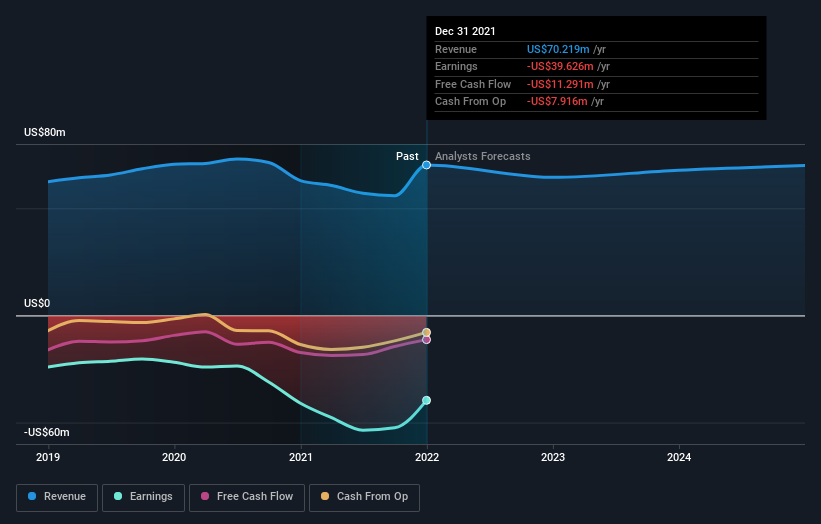Those who invested in New York City REIT (NYSE:NYC) a year ago are up 29%
If you want to compound wealth in the stock market, you can do so by buying an index fund. But one can do better than that by picking better than average stocks (as part of a diversified portfolio). To wit, the New York City REIT, Inc. (NYSE:NYC) share price is 24% higher than it was a year ago, much better than the market decline of around 12% (not including dividends) in the same period. If it can keep that out-performance up over the long term, investors will do very well! We'll need to follow New York City REIT for a while to get a better sense of its share price trend, since it hasn't been listed for particularly long.
With that in mind, it's worth seeing if the company's underlying fundamentals have been the driver of long term performance, or if there are some discrepancies.
Check out our latest analysis for New York City REIT
Given that New York City REIT didn't make a profit in the last twelve months, we'll focus on revenue growth to form a quick view of its business development. Generally speaking, companies without profits are expected to grow revenue every year, and at a good clip. That's because fast revenue growth can be easily extrapolated to forecast profits, often of considerable size.
Over the last twelve months, New York City REIT's revenue grew by 12%. That's not great considering the company is losing money. In keeping with the revenue growth, the share price gained 24% in that time. While not a huge gain tht seems pretty reasonable. Given the market doesn't seem too excited about the stock, a closer look at the financial data could pay off, if you can find indications of a stronger growth trend in the future.
You can see how earnings and revenue have changed over time in the image below (click on the chart to see the exact values).
We consider it positive that insiders have made significant purchases in the last year. Having said that, most people consider earnings and revenue growth trends to be a more meaningful guide to the business. You can see what analysts are predicting for New York City REIT in this interactive graph of future profit estimates.
What About Dividends?
When looking at investment returns, it is important to consider the difference between total shareholder return (TSR) and share price return. Whereas the share price return only reflects the change in the share price, the TSR includes the value of dividends (assuming they were reinvested) and the benefit of any discounted capital raising or spin-off. It's fair to say that the TSR gives a more complete picture for stocks that pay a dividend. As it happens, New York City REIT's TSR for the last 1 year was 29%, which exceeds the share price return mentioned earlier. This is largely a result of its dividend payments!
A Different Perspective
New York City REIT shareholders should be happy with the total gain of 29% over the last twelve months, including dividends. Unfortunately the share price is down 6.4% over the last quarter. Shorter term share price moves often don't signify much about the business itself. It's always interesting to track share price performance over the longer term. But to understand New York City REIT better, we need to consider many other factors. Even so, be aware that New York City REIT is showing 4 warning signs in our investment analysis , and 3 of those shouldn't be ignored...
There are plenty of other companies that have insiders buying up shares. You probably do not want to miss this free list of growing companies that insiders are buying.
Please note, the market returns quoted in this article reflect the market weighted average returns of stocks that currently trade on US exchanges.
Have feedback on this article? Concerned about the content? Get in touch with us directly. Alternatively, email editorial-team (at) simplywallst.com.
This article by Simply Wall St is general in nature. We provide commentary based on historical data and analyst forecasts only using an unbiased methodology and our articles are not intended to be financial advice. It does not constitute a recommendation to buy or sell any stock, and does not take account of your objectives, or your financial situation. We aim to bring you long-term focused analysis driven by fundamental data. Note that our analysis may not factor in the latest price-sensitive company announcements or qualitative material. Simply Wall St has no position in any stocks mentioned.

